J.D: What drew you to a life in music? Tell us your story.
KS: It’s actually kind of funny how I started on the flute – I was coming into sixth grade and we were all supposed to be choosing our instrument for band. My parents were like, “You’re playing the flute.” I had no option at all, because my brother had played the flute and then quit, so we had one around, and we couldn’t afford anything else. Little did they know it would become my entire life.
I grew up in Texas, where band programs are so competitive, and nearly everyone takes lessons and plays at a very advanced level for high school musicians. My private teacher, Jeanine Lofgren, was such an important figure in my early musical development. Those experiences launched me into opportunities in California, New York, and Maryland, before returning to the University of Texas to complete my bachelors. My professor there, Fritz Kraber, strongly encouraged me to go to graduate school and to pursue a career in academia. I earned my masters and doctorate at the University of Cincinnati College-Conservatory of Music and immediately got my first position as Assistant Professor at Denison University in Ohio. I stayed there for three years and then got my job at the University of Florida in 2002, where I’ve been ever since.
Teaching at a university has afforded me so many opportunities to travel, to perform at conservatories and music conferences all over the world, I am very grateful. I’ve now played on six continents and am trying to figure out how to arrange some kind of performance in Antarctica, haha! I have absolutely loved teaching college students and having a positive impact on their careers and lives. Something about working with young adults keeps me feeling young as well!
JD: You’ve been the flute professor at the University of Florida for more than two decades. What are some of the joys of staying in one place?
KS: It is wild to think that I have lived in Gainesville longer than any other place in my life. I love this small city and having been here so long, I’ve been able to develop stronger connections with my colleagues, with my neighbors, and with friends throughout the city and state. It’s been wonderful to be able to raise my own kids in the same home their whole lives.
Most importantly, I value being able to create a stable environment for the students in my flute studio (and others in our music school). I am in my office five (or more) days a week, students know they are safe there and can receive support anytime, musical or otherwise. I love having the security of a full professor position, but even now many states (including mine) are challenging the existence of tenure at universities, so I definitely don’t take it for granted.
JD: What do you love about teaching?
KS: I love learning how to teach each student successfully as an individual. I love getting to know them extremely well, their values, their challenges, their backgrounds, and then figuring out how to adapt my pedagogical methods to most effectively and efficiently shape their education. I love helping them to discover their own unique musical voice, and to learn music they thought was unattainable. I love watching them develop as musicians but also as people, finding their path forward.
JD: Tell us about your life as a composer. Where do you draw inspiration?
KS: Even after writing over ten works for flute, I still have trouble seeing myself as “a composer.” I love writing programmatic works, with the intention of expressing a particular story or setting. Anytime I feel strongly impacted by a special trip or a life event, those are things that often inspire a piece. Frequently, I don’t have space and time in my daily life to compose, so it usually happens during summers or other downtime, like a sabbatical. Usually I just start a recording device and then improvise until I come up with a melody that feels right, and then I’ll work to develop a piece from there. It’s cathartic for me and I love having an expressive outlet that has a positive impact on others.
JD:You’re a dynamic performer. What inspires your choices of repertoire?
KS: Well, thank you! One of my favorite events every year is the National Flute Association Convention – I love attending as many recitals as possible, listening carefully to new repertoire and making note of all the amazing new pieces out there! My students are also a fantastic resource, because they watch a lot of performance videos and ask if they can play pieces they’ve heard—that’s how I learn about a fair number of new works. I have a few favorite pieces that I will bring back every decade or so, but other than that, I like to keep things fresh and learn new music whenever possible. I have advocated for the music of underrepresented composers for 25 years (before it was popular!) so I do my best to present well-rounded, interesting, and compelling programs.
JD: Tell us about your love of South American music and your work as a recording artist.
KS: My mother was raised in Peru, so my family grew up listening to a lot of traditional music from South America. In college, I pursued a minor/cognate area in ethnomusicology (world music) because that whole field really resonated with me. I ended up writing my dissertation on Brazilian flute music, and Latin American flute music has been a theme in my research and creative activities ever since then. I have been lucky enough to travel to, perform in, and conduct research in Peru, Argentina, Chile, Brazil, Ecuador, and Colombia. I have a trove of music from these countries, but I have recorded only a small bit so far. I look forward to performing and recording more in the future.
On my two CDs (Images and Colors), I have worked to include a variety of composers, all from the 20th and 21st century. There is representation from Latin America and also several contemporary women composers. All of the works are for unaccompanied flute, which are my favorite to perform since you can achieve so many different colors, delicate nuances, and extended techniques. I also love the programmatic titles. They keep the performer and listener more engaged than abstract titles such as “Sonata” or “Allegro.” Give me Kokopeli any day!
JD: What can we as artists and teachers do to use our voice for the good of society?
KS: There is so much that we can do, from careful, thoughtful, and representative programming; to fundraising for causes through our performances; to commissioning composers to write new works inspired by an important issue; to teaching the next generation of musicians to affect positive change in a myriad of ways. These are just a few examples!
JD: Is there any advice you have for a young person today who might seek a career in music?
KS: I would recommend keeping an open mind and being fearless, be willing to try anything and everything in the musical world, even if it feels scary or unfamiliar. You never know what opportunities may arise from some random chamber group you put together, or from some gig you got playing orchestral arrangements of video game music, etc. Be yourself and have confidence in your ideas. The music world is ever changing and there is room for you in it!
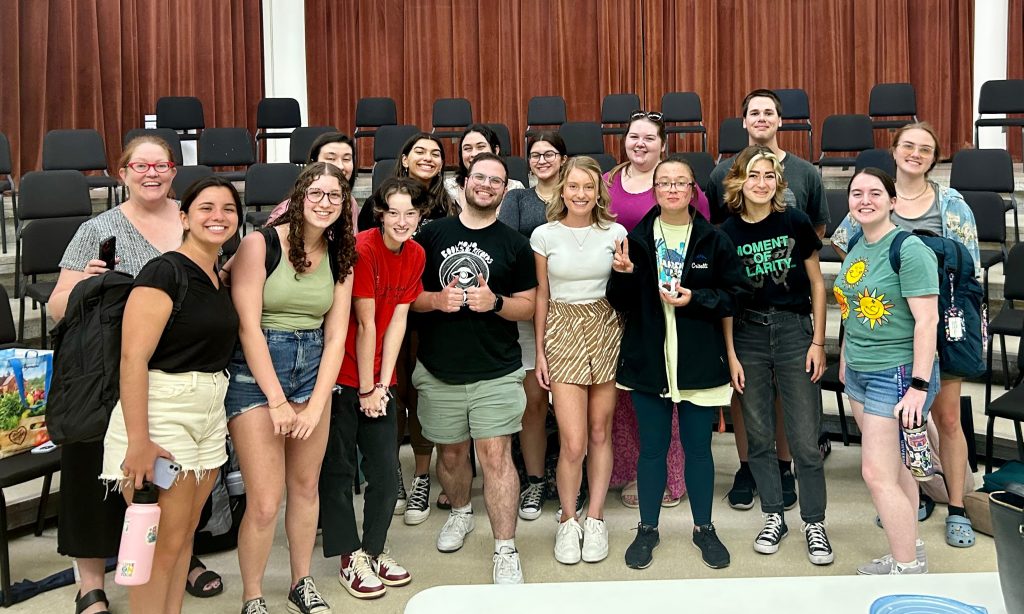

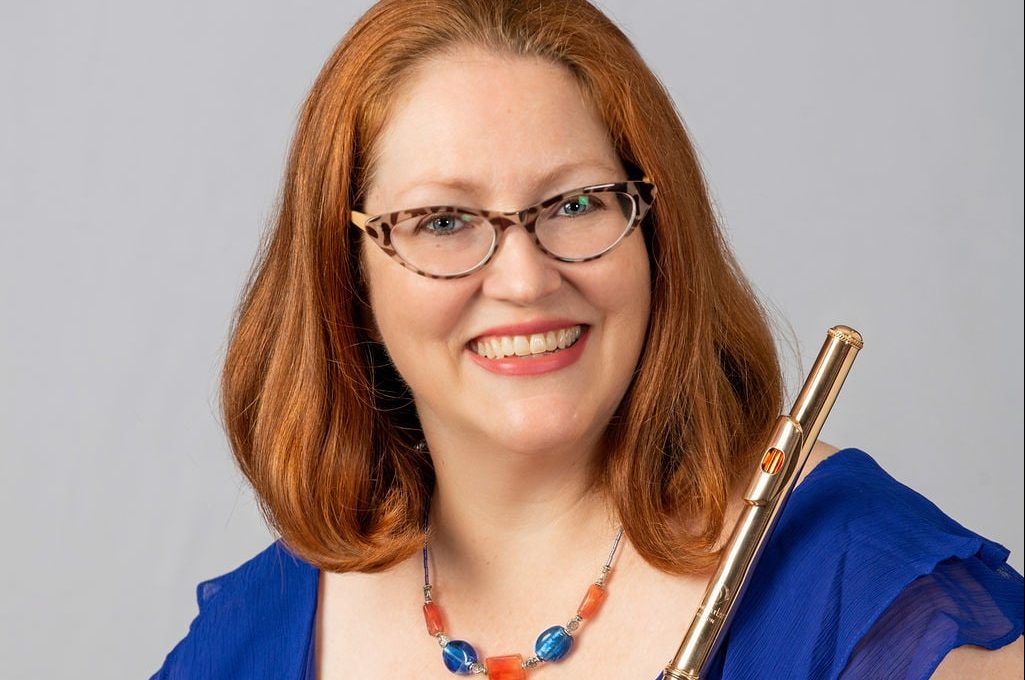
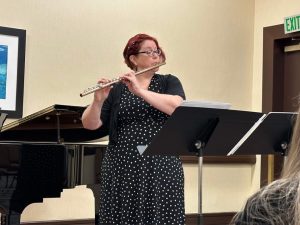
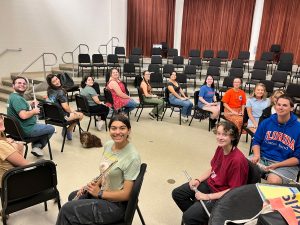
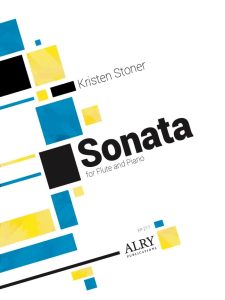
Dr. Stoner is easily one of the most influential people in my life and I am infinitely grateful for all that she has done and continues to do for the studio and beyond! We love you!!!